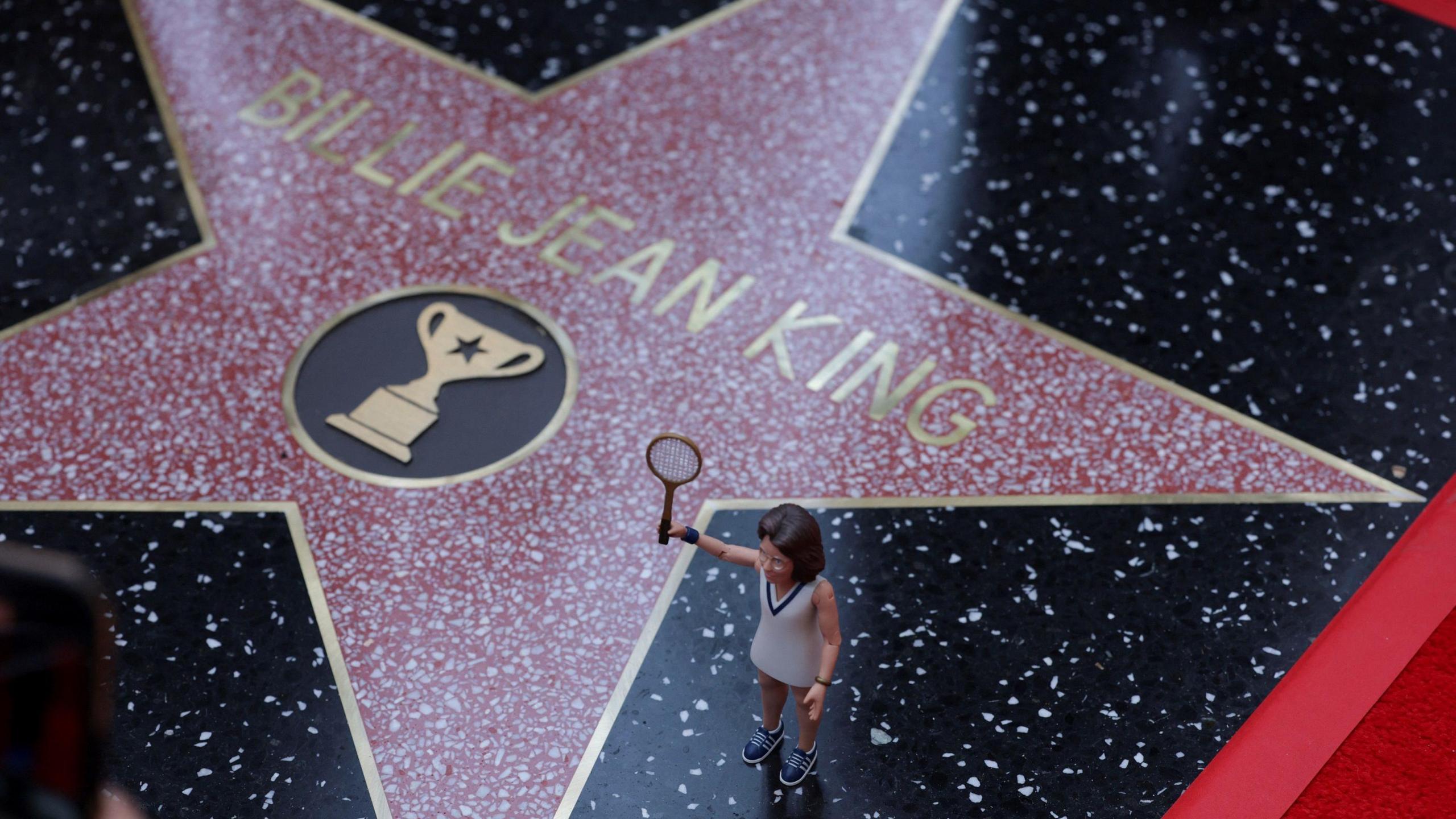
Billie Jean King’s Walk of Fame Star Is a Tribute to a Life Beyond Tennis
Sporting legend honoured with Hollywood’s ultimate tribute as she makes history with Walk of Fame star
There are moments in life that transcend sport. For Billie Jean King, who’s spent her 81 years breaking barriers, lifting trophies, and fighting for justice, another such moment arrived on a sunlit day in Los Angeles — this time on the famed pavement of Hollywood Boulevard.
The tennis icon and social equality pioneer received her Walk of Fame star, the 2,807th to be placed along the legendary strip that has long immortalised the names of Hollywood’s elite. But this wasn’t just another celebrity receiving a sidewalk souvenir. This was the first time a woman had been honoured in the new sports entertainment category, a development that made the moment even more poignant.
“The important thing is, I don’t want to be the last one,” King said with her trademark mix of humility and conviction. “My family loved music and movies. My mother would have loved this.”
A Star for a Trailblazer

Close up of Billie Jean King’s Hollywood Walk of Fame star
Billie Jean King’s name may now be etched in pink terrazzo and brass, but it’s always belonged in lights.
With 39 Grand Slam titles to her name — 12 in singles, 16 in women’s doubles, and 11 in mixed doubles — King’s impact on tennis is unquestionable. But it’s her fearless voice off the court that has made her one of the most important sporting figures in history. From founding the Women’s Tennis Association (WTA) to championing equal prize money for women in sport, she has spent decades turning rallies into revolutions.
She became a global sensation in 1973 when she defeated Bobby Riggs in the now-legendary “Battle of the Sexes”, a match watched by an estimated 90 million people worldwide. King’s emphatic victory didn’t just silence a showman — it shouted for generations of women to be taken seriously.
Now, her achievements will be permanently celebrated among pop culture greats — actors, musicians, filmmakers — but make no mistake, Billie Jean King is as Hollywood as they come. Not because of red carpets or blockbuster fame, but because her life story has always had the elements of a timeless script: courage, conflict, defiance, and triumph.
Hollywood Steps into Sport
Until recently, the Hollywood Walk of Fame didn’t include athletes unless they’d crossed over into movies or television. But the introduction of a dedicated sports entertainment category has changed the landscape — and it’s fitting that Billie Jean King should lead the way.
Her star isn’t just a personal accolade. It’s a statement. It says that sport matters in culture. That achievements on the field, court, or pitch can inspire just as much as those on the silver screen.
King’s inclusion is symbolic in more ways than one. She’s never been afraid of starting something new. Her legacy isn’t just about tennis — it’s about inclusion, progress, and visibility.
A Life of Firsts
This star joins a long list of honours that celebrate King’s influence far beyond the confines of sport. She received the Presidential Medal of Freedom in 2009 from Barack Obama, was honoured with the BBC’s Lifetime Achievement award in 2018, and in 2020, saw the Fed Cup — the premier team competition in women’s tennis — renamed the Billie Jean King Cup.
And yet, despite the accolades and history-making, King remains grounded. “It’s not about me,” she has often said, “it’s about what we do together.”
Her star on the Walk of Fame feels like a shared victory. For women in sport. For female leaders. For those told they’re too different, too loud, or too ambitious.
King of the Courts, Queen of Change
To appreciate Billie Jean King’s place on the Walk of Fame, it helps to understand her impact through the lens of culture, not just sport. She emerged in the 1960s and 70s as a vocal advocate for gender equality during a period of immense social change in America. Where others stayed silent, she used her platform to speak up — about pay gaps, LGBTQ+ rights, and inequality in boardrooms and locker rooms alike.
Long before athletes “used their voice” became a modern cliché, King had made it a personal mission.
“People think being an activist means being angry,” she once said. “It doesn’t. It means caring so much that you can’t stay quiet.”
Her star now sits among actors who’ve portrayed powerful roles and musicians who’ve penned anthems of change. But she lived it. She fought it. And she won.
Looking to the Future
If you walk past Billie Jean King’s newly minted Walk of Fame star, take a moment. Reflect not just on the tennis triumphs or the iconic headbands of the 70s, but on what she represents today.
In an era where athletes are increasingly measured by their social impact as much as their statistics, King remains the blueprint.
Fittingly, her star comes at a time when the Billie Jean King Cup is back in focus, with Great Britain set to face Germany in the qualifiers. It’s yet another reminder that her name still inspires — from tennis courts in Stuttgart to television screens in Sheffield.
The Lasting Shine of a Walk of Fame Star
Billie Jean King has spent her life challenging institutions — be it the tennis establishment, sports governance, or social norms. The Hollywood Walk of Fame may once have seemed a world away from the Centre Court of Wimbledon or the courtside of Flushing Meadows. But now, it’s another arena she’s entered and elevated.
As she stood beside her star, smiling modestly and acknowledging the applause, it wasn’t just a Hollywood moment. It was a human one — a tribute to a lifetime of courage, compassion, and unwavering belief in equality.
The walk may be lined with names from the past, but this star belongs to someone whose light continues to shape the future.
















































There are no comments yet. Be the first to comment!